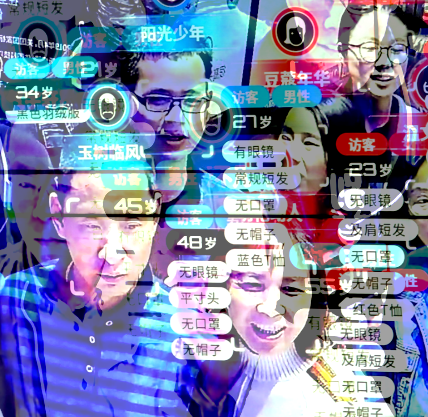Locals linked to Chinese spying
 Australia’s top universities could be helping develop mass surveillance and military technologies for China.
Australia’s top universities could be helping develop mass surveillance and military technologies for China.
Local unis have developed deep ties with companies involved in Beijing's global surveillance apparatus.
The claims raised by Australian media outlets this week focus largely on two companies and organisations that have been blacklisted by the US Government after they were implicated in human rights abuses against China's Muslim minorities.
One of those is Global Tone Communication (GTCOM) – a Chinese Gvoernment-owned global data-mining company.
GTCOM has a memorandum of understanding with the University of New South Wales (UNSW) to test its technology, which allows it to mine data in 65 languages at a rate of 16,000 words per second from websites and social media.
UNSW has denied GTCOM has any influence on its programs.
GTCOM shares technology and data with Chinese tech giant Huawei, which is blacklisted in the US and banned from building Australia’s 5G network due to security and espionage concerns.
It is also partnered with Chinese company Haiyun Data, which produces technology for the surveillance of minority ethnic Muslim Uyghurs.
Australian Strategic Policy Institute (ASPI) analyst Samantha Hoffman says the company intends to support the Chinese Communist Party's security interests.
“Whether it contributes to a state security product or propaganda or military intelligence, all of the data they're collecting can then be turned into information that supports those objectives,” said Dr Hoffman, who released a major report on GTCOM this week.
“So immediately that raises red flags.”
Professor John Fitzgerald, a former chair of DFAT's Australia-China Council, says Australian universities are being manipulated by the promise of money and prestige.
“Australia's science and technology priorities are being set by the Chinese Government because we enter into collaborations that have really been designed to support China's goals, not ours,” he told the ABC.
“Many universities are very happy to proceed with whatever it is … because of the money and prestige involved.
“There's a possibility that some of this research will go towards uses which could place Australia at risk.”
GTCOM’s partner Haiyun Data has a new joint artificial intelligence laboratory with the University of Technology, Sydney (UTS), according to Chinese media.
However, UTS says there is no joint laboratory, and that the Chinese media reporting is “a complete misrepresentation”.
UTS associate dean and director of its Centre for Artificial Intelligence, Professor Jie Lu, was last month awarded a $3.2 million Australian Research Council grant to enable artificial intelligence to learn autonomously from data.
UTS says its research project with Haiyun Data is developing technology for handwriting recognition.
Earlier this year, UTS launched a review into a separate $10 million deal for a high-tech research centre funded by China Electronics Technology Corporation (CETC) – a state-owned military company.
CETC is also linked to the mass monitoring of Uyghurs, but UTS denies its research is part of that surveillance.
The $10 million deal from 2017 saw CETC fund several projects, including one focused on public security video analysis.
Reports say the university is now abandoning that project and several others with CETC because of concerns raised by Australia's Defence Department.
An expert at the University of Adelaide has worked with high-tech Chinese start-up Megvii on technology to track vehicles in videos.
Megvii is a leader in facial recognition technology is on the US trade blacklist after being implicated in human rights abuses, but company officials have told reporters that it tries “to ensure that our technology is not used for damaging purposes”.
The university says one of its professors was involved in the Megvii project, but it was not a formal collaboration.
Scientists at the University of Sydney have collaborated with Chinese video surveillance giant SenseTime to help it track moving objects across multiple cameras. SenseTime has also been blacklisted by the US Government over human rights concerns.
The university says it is reviewing the SenseTime partnership.
Australian universities have also collaborated with Chinese defence universities, with researchers at the Australian National University (ANU) having worked on dozens of different efforts, including a 2019 study on covert communications with the China's National University of Defense Technology.
That university was blacklisted by the US four years ago.
The study authors said at the time that their work could have military applications.
Additionally, reports say the Chinese Government co-funded at least four University of Queensland courses.
Federal Education Minister Dan Tehan says foreign interference in Australian universities is at unprecedented levels.
“We want to make sure it's very clear what the responsibilities of universities are when it comes to collaborating with any foreign government, because it's incredibly important … that collaboration is in Australia's interests,” he told reporters.
Professor Clive Hamilton, a researcher focused on Chinese Communist Party interference at universities, says it is an “astonishing” situation.
“Australian universities have not been sleepwalking, they've been in a coma,” he said.
“Perhaps three or four years ago university vice-chancellors could have said; ‘Oh well, we didn't know’.
“That is no longer an excuse.”
UNSW Professor of Artificial Intelligence Toby Walsh said Australian universities must be wary of who they collaborate with.
“We've seen such rapid advances in the last few years, that we do now have to wake up and consider seriously the implications and how the technology that we work on can be misused,” he said.







 Print
Print